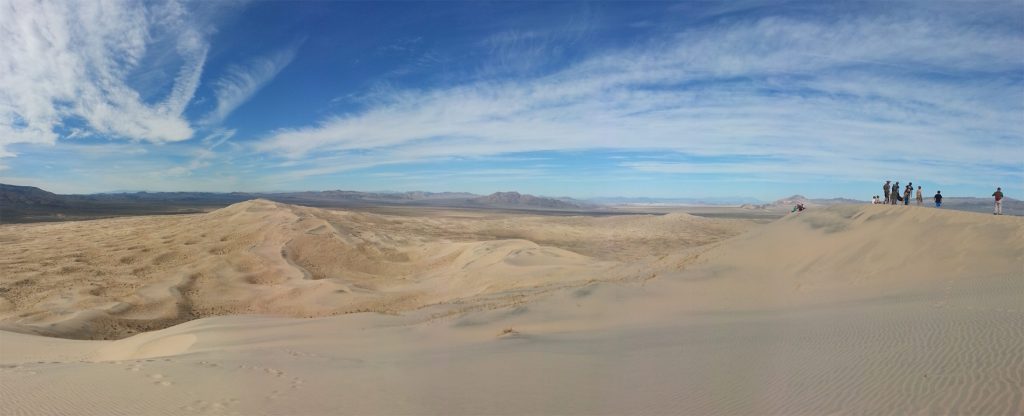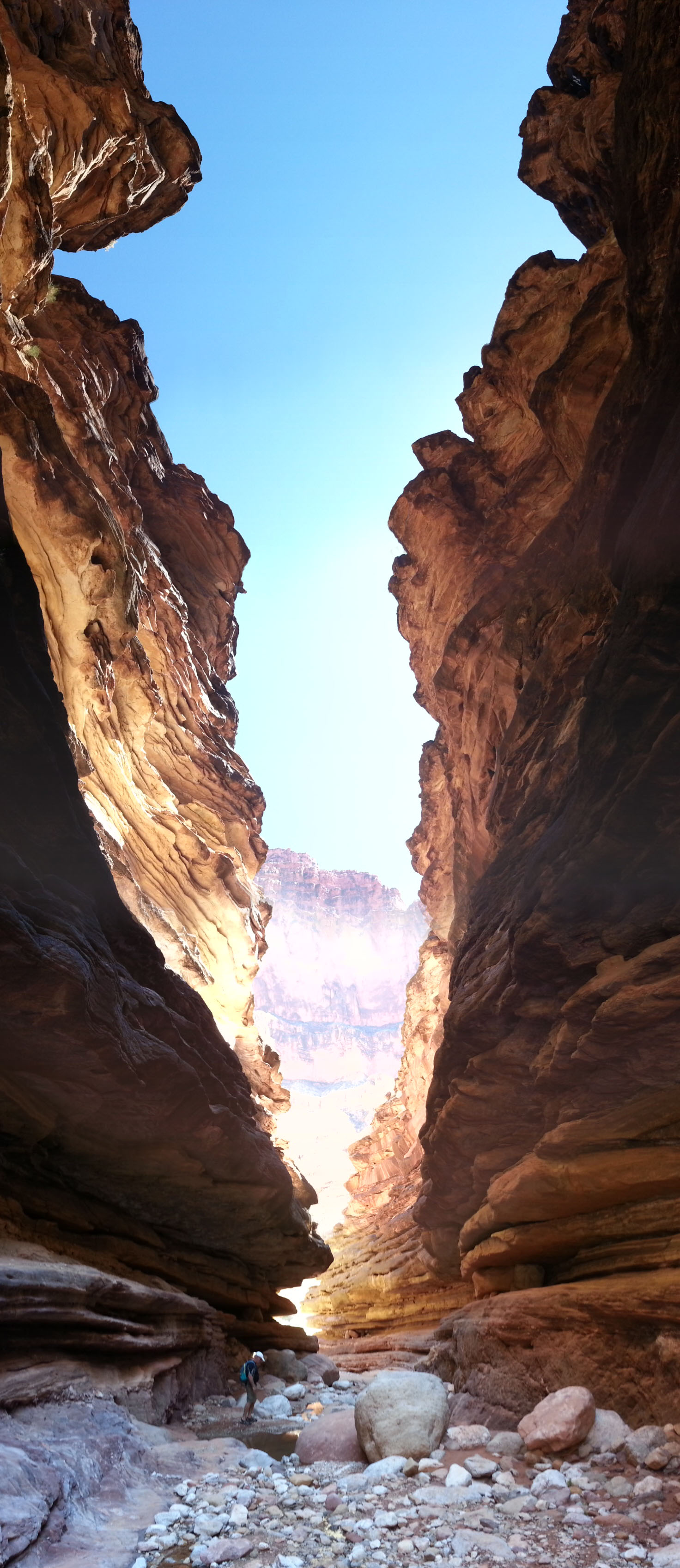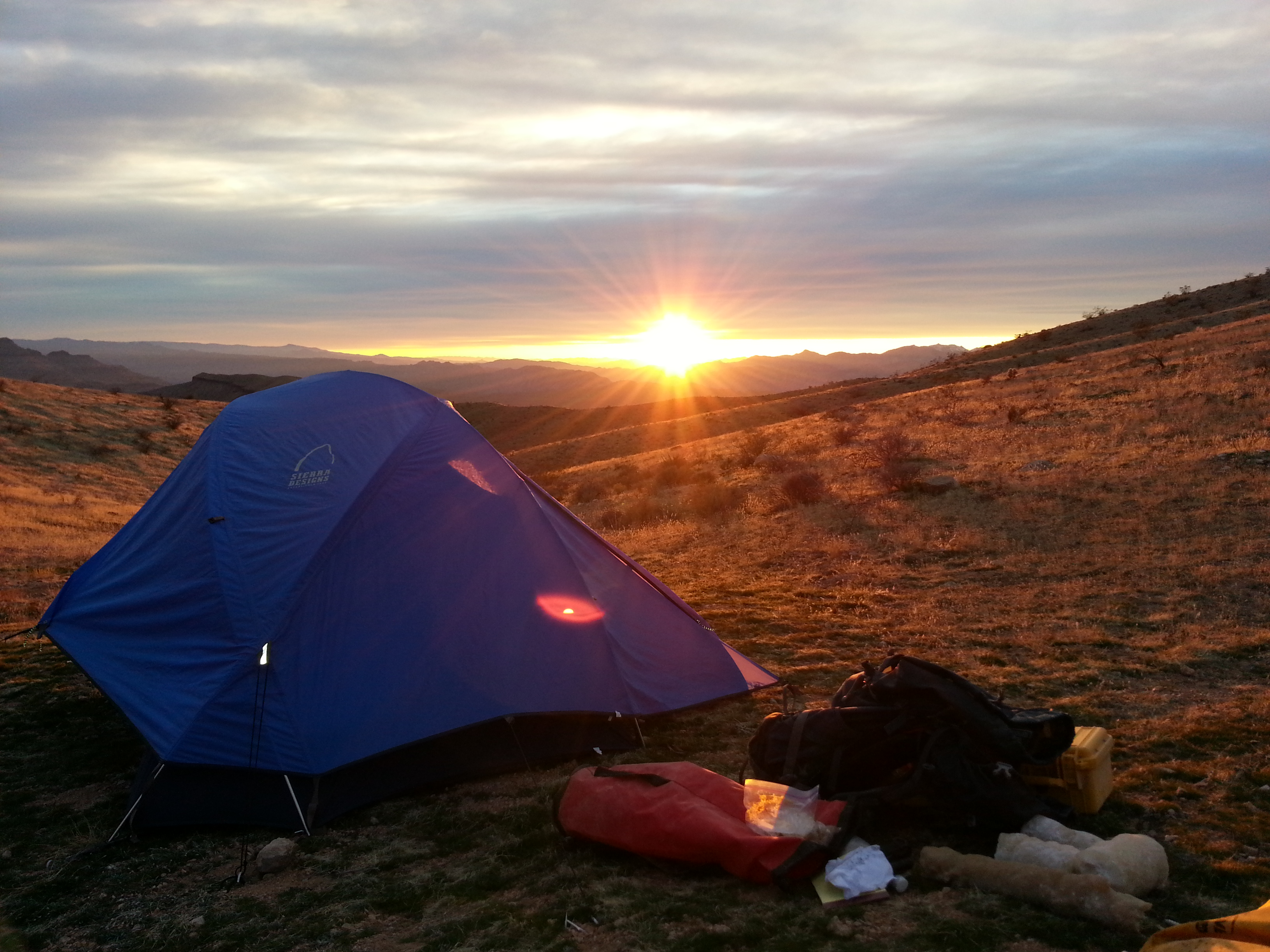Undergraduate Program
The Department of Geoscience offers two undergraduate degrees, see attached worksheets
- Geoscience Degree Worksheet for Geology
- Geoscience Degree Worksheet for Earth and Environmental Science
We also offer three minors: Geology, Earth and Environmental Science, and Physical Geography.
Find here the career guides for both undergraduate degrees: Geology and Earth and Environmental Science
Apply to UNLV undergraduate program
B.S. in Geology
The undergraduate Bachelor of Science degree in Geology (GEOL) is a rigorous program that is designed to: 1) prepare students for entry into the workforce as practicing geoscientists, and 2) provide them with the foundational knowledge required to pursue an advanced degree. Students enrolled in the Geology program are afforded the opportunity to pursue interests in several areas of specialization, including: petrology, volcanology, structural geology, sedimentary geology, hydrology, soil science, climate change, petroleum geology, and paleontology. A critical component of this degree program is a field-based capstone project in which students must demonstrate their ability to interpret a natural system and communicate their understanding in a professional manner.
Student Learning Outcomes
- Identify common rock-forming minerals in hand specimen and thin section, major rock types and will be able to describe the conditions under which each of them formed. This will include being able to describe the chemical characteristics of various types of rocks, geologic influences on environmental pollutants, and the use of stable and radiogenic isotopes as environmental tracers and tools in dating rocks and water.
- Identify the common types of invertebrate and vertebrate fossils, their approximate age, and the environments in which they lived, and have a grounding in the historical development of the field of geology.
- Recognize in the field, various types of geologic structures, and be able to use these to reconstruct the structural history of a region.
- Describe the major processes that determine the characteristics of the earth’s surface, and be able to examine a landscape and interpret it’s geomorphic history.
- Describe the plate-tectonic history of the earth (when various supercontinents assembled and fragmented), the relationship between plate tectonic processes and mountain building, and the types of data that are used to reconstruct the position of a particular plate in the geologic past.
- Describe the regional stratigraphic framework of the Southern Nevada region; they will also be able to go into a new region that has a well-exposed stratigraphic record, and reconstruct the sedimentological history of the region.
- Be facile in computer applications in geology including spatial and imagery analysis applications, quantitative skills, and express themselves well in oral and written reports.
- Apply the techniques of at least two specializations within the field of geology (e.g., geophysics, hydrogeology, GIS, geochronology, petroleum geology) to the solution of appropriate research or applied problems.
- Demonstrate the ability to function independently, collaboratively, and ethically with others in the profession as colleagues and supervisors.
- Demonstrate the ability to enter a new field area, construct a geologic map on a topographic base, interpret the geologic history of the area, and write a professional quality report on the geology of the area. This learning objective comprises the Capstone experience for this degree program and is fulfilled through the summer field geology course. It also includes the ability to recognize, formulate, employ, and interpret the scientific methodology, and employ critical thinking skills. Many other learning outcomes for this degree program are also reinforced through this capstone experience (For instance, outcomes 1-5, and 9).
B.S. in Earth and Environmental Science
The undergraduate Bachelor of Science degree in Earth and Environmental Science (EAS) is a science-based program designed to prepare students for a range of challenging careers in the broad fields of environmental and geologic sciences, including science education. The degree program also provides a solid foundation for those looking to pursue advanced degrees in education, environmental studies, public policy, or law. Students in this degree track are accorded the flexibility to work with their advisors in selecting Geology, Geography, and other electives that will best prepare the student to meet their educational goals and the employment criteria for their chosen profession. This degree offers students the opportunity to explore a wide range of sub-disciplines within the Earth Sciences, including: geology, hydrology, soil science, climate change, natural resource development, and sustainability. Additionally, students can choose to develop critical skills in field-based geologic techniques, remote sensing, and geographic information systems (GIS).
Student Learning Outcomes
- Demonstrate the ability to recognize, formulate, employ, and interpret the scientific methodology through the completion of a research project requiring the submission of a research paper and/or a presentation of ones findings.
- Demonstrate the knowledge of major rock types, geologic time, evolution, and earth history events through a combination of identification techniques, inclusion of such topics within the evaluation of broad-based essay questions, and/or their application as part of a student research project.
- Demonstrate the knowledge in various specializations within the field of earth science to solve appropriate research or applied problems through the successful completion of a broad range of geoscience courses.
- Demonstrate the ability to function independently, collaboratively, and ethically with others in the profession as colleagues and supervisors through project-based course work, participation in wider department functions, and/or through volunteering of one’s time to support the activities of the department.
- Demonstrate the written and verbal communications skills required to convey contemporary theories in earth science and in how the Earth operates as a system through a range of written products and presentation opportunities included within course work and as other presentation opportunities arise (courses, volunteer school presentations and conferences).
- Demonstrate sufficient quantitative skills, and proficiencies in computers and multi-media systems for application in the analysis and presentation of earth science concepts.
- Demonstrate the ability to integrate accumulated skills and knowledge with a capstone experience for this degree comprising the successful completion of a research project as part of a regularly scheduled course or as an independent research experience, resulting in its presentation as part of the department’s regularly scheduled Geosymposium research conference. This also includes the ability to employ critical thinking skills.
Minor in Geology
The Geology Minor is appropriate for all students with interests in geoscience and especially for those who seek careers that may be enhanced by a background in geoscience. These include, but are not limited to biology, physics, chemistry and engineering.
Learning Outcomes
Upon completion of this minor, students will have a solid understanding of the field of Geology and will be able to apply scientific reasoning to a variety of geological topics, allowing them to apply their knowledge of such topics as mineralogy and the evolution of earth and life to relevant topics of interest within their declared major.
Minor in Earth and Environmental Science
The Earth & Environmental Science Minor is appropriate for all students with interests in the environment and especially for those who seek careers that may be enhanced by a background in Earth Science. These include, but are not limited to biology, physics, chemistry and engineering.
Learning Outcomes
Upon completion of this minor, students will have a broad understanding of the topical area of Earth and Environmental Sciences and will be able to apply their understanding of the earth and its geologic and environmental processes to relevant topics of interest within their declared major, including those seeking to teach earth science classes.
Minor in Physical Geography
The Physical Geography minor is designed for students in the Colleges of Science, Education, Liberal Arts, Engineering, and others, who desire a scientific understanding of the spatial aspects of the Earth System and analysis of spatial data. The minor emphasizes the four spheres of the Earth System: Atmosphere, Lithosphere, Hydrosphere, and Biosphere.
Learning Outcomes
Upon completion of this minor, students will have a solid understanding of the field of Physical Geography and will be able to analyze spatial data through the use of Geographic Information Systems (GIS). Regardless of the elective course credits selected, students will have an understanding of Earth System Science, allowing them to apply such concepts as climate change, evolution of the earth and life, geomorphology, and resource studies to relevant topics of interest within their declared major.
Career Opportunities in Geoscience

The future looks bright for those pursuing an education in geology or a geoscience related field as demand for geoscientists is high and the opportunities are diverse. With increasing global demand for energy and natural resources; growing stresses on the environment through pollutants, population increase and global warming; increasing population concentration in natural hazard prone coastal regions, it is no surprise that geoscientists are in demand an increasing demand is forecast. A recent report by the US Bureau of Labor Statistics projects growth in geoscience jobs greater than 21% between 2010 and 2020, exceeding most other job sectors, and 2010 median pay for Geoscientists of $ 82,500 with the highest median wages in the oil and gas industry (median $125,350). Geoscientist employment spans a broad range of fields, including securing fossil fuel and alternative energy resources, exploration and management of minerals and natural resources, insuring groundwater quality and supply, promoting preparedness for natural hazards, and stewardship of the environment. Further information on what Geoscientists do, where they work, and the job and salary outlook can be found in the American Geologic InstitutesCareers in Geoscience brochure.
Students who complete the BS in Geology are ideally suited for entry-level jobs in environmental consulting, energy exploration, mining, state or federal government agencies. These jobs are often field-oriented work, where geologists collect soil, water and rock samples for lab analysis and mapping, or where geologists work on computers to manage information about natural resources or environmental issues. Many industries and agencies provide additional training to BS-level geologists that allow them to perform specialized work in a particular sub-discipline. Most employers who hire at this level are looking for well-rounded scientists with a firm grasp of fundamental geoscience knowledge and skills.
Students who complete the BS in Earth and Environmental Sciences ideally suited for introductory-level jobs in environmental consulting, energy exploration, mining, state or federal government agencies. Specialization through taking specific combinations of classes may provide additional employment opportunities in a number of sub-disciplines, and those who are interested in teaching at the middle to high school level are well qualified with this degree, in combination with teaching credentials. These jobs are often field-oriented work, where geologists collect soil, water and rock samples for lab analysis and mapping. Many industries and agencies provide additional training to BS-level geologists that allow them to perform specialized work in a particular sub-discipline. Experience in sub-disciplines such as paleontology, hydrology, soil science, geospatial sciences, or planetary geology can be gained through courses taken to satisfy this degree. In order to determine which courses are most beneficial, it is important to discuss these options with an advisor.
Students who complete the Minor in Geology may be suited for entry-level jobs in environmental consulting, energy exploration, mining, state or federal government agencies. The completion of a Geology Minor with a different Major can be a very powerful combination, and the career opportunities can range from field-oriented work, where geologists collect soil, water and rock samples for lab analysis and mapping, to highly specialized work depending on the Major. The combination of an Elementary or Secondary Education Major with a Geology minor can be highly desirable for teaching science at the K-12 level.
Students who complete the Minor in Physical Geography may be suited for entry-level jobs in environmental consulting and state or federal government agencies. These jobs are often computer-oriented work, where graduates manage geospatial information about natural resources or environmental issues. The Physical Geography Minor is designed to provide the mapping and geospatial expertise needed to perform fundamental work in geographic fields. The combination of Physical Geography with a social sciences, education, medical, architecture, or similar major can provide many career opportunities depending on the major.